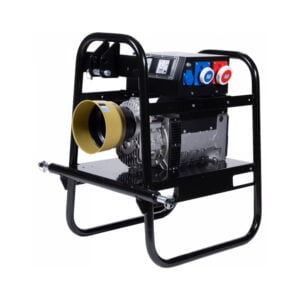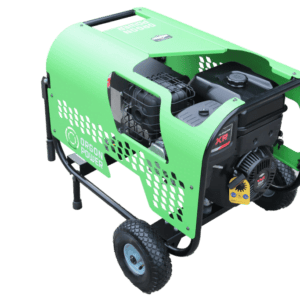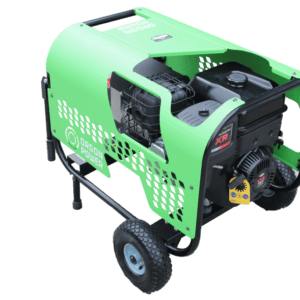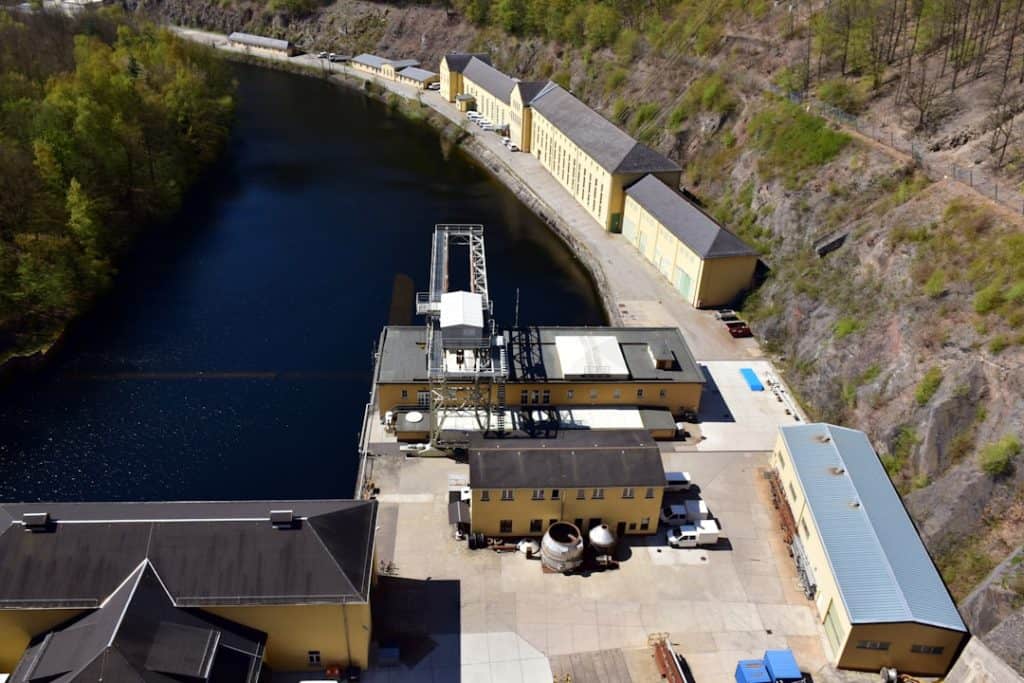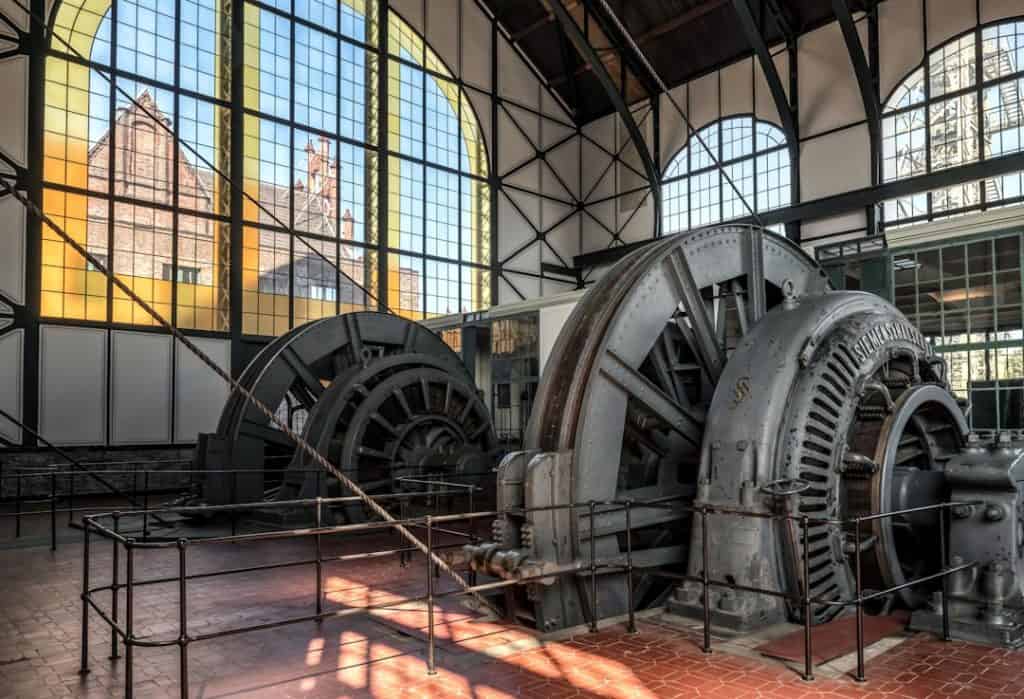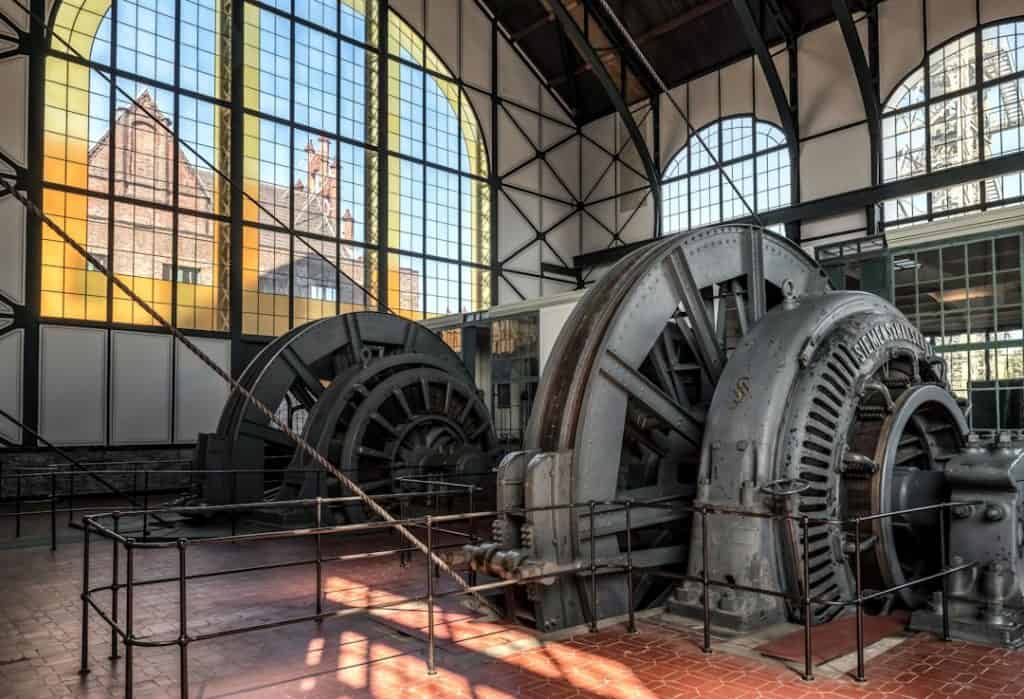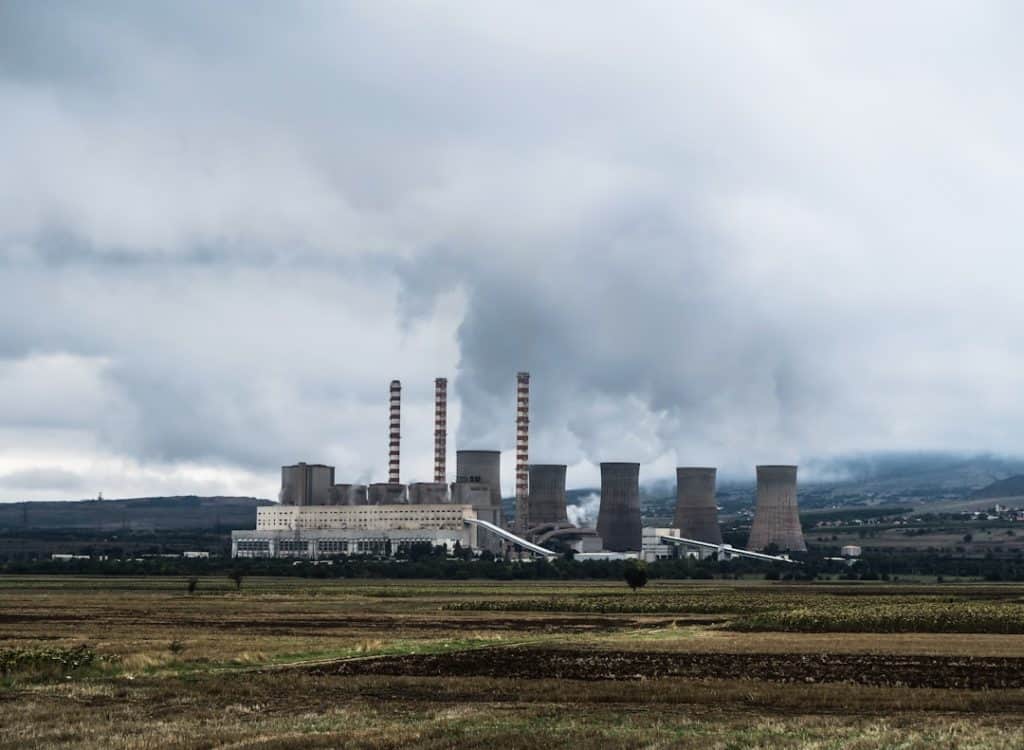Generators are key devices in industrial plants that ensure an uninterrupted supply of electricity. Their primary function is to automatically take over power in the event of an interruption in the main power system. This is essential to maintain production continuity and prevent financial losses due to downtime.
In industrial environments, generators have multiple roles:
1. Ensuring uninterrupted operation: Enable production lines and critical equipment to continue operating during power outages. 2.
Loss Protection: Prevent production losses and potential equipment damage due to sudden power outages. 3. Optimization of energy consumption: They can be used to manage peak loads and reduce electricity costs.
4. Flexibility in energy distribution: They enable the adjustment of energy supply according to the specific needs of different parts of the plant. 5.
Programmability: Modern generators can be programmed to start automatically under certain conditions, such as a detected voltage drop or scheduled peak load periods. Proper sizing and maintenance of generators is critical to their efficiency and reliability in industrial applications. Regular checks, tests and servicing are necessary to ensure their readiness in critical situations.
Key Takeaways
- Generators can improve the continuity of production by ensuring an uninterrupted supply of electricity
- The use of generators in production processes allows to reduce the risk of interruption of production due to power failure
- Generators can reduce production costs through efficient use of fuel and optimization of energy consumption
- The role of the generator in maintaining the safety of the production process is reflected in ensuring the continuous operation of safety systems and equipment
- Choosing the right generator for production needs requires an analysis of energy consumption and the specific requirements of the production process
Advantages of using generators in production processes
The use of generators in production processes brings numerous advantages for industrial plants. One of the key advantages is the possibility of independent supply of electricity, which ensures continuity of work even in the event of a power outage. This is vital for industrial plants that operate continuously and where any interruption can have serious business consequences.
Also, the use of generators enables flexibility in the distribution of electricity within the plant, which contributes to the efficiency and productivity of the production process. Another advantage of using generators is the possibility of optimizing the production process by programming the generators to automatically take over the electricity supply in certain situations, such as peak loads or power outages. This allows plants to be ready for different scenarios and to adapt to current needs, thus ensuring stability and continuity of production.
All these advantages contribute to the efficiency and productivity of the production process, making the use of generators essential for modern industrial plants.
How generators can reduce production costs

Using generators in manufacturing processes can significantly reduce production costs in a number of ways. First, generators enable independent supply of electricity, thereby reducing the risk of losing time and money due to power outages. This is vital for industrial plants that operate continuously and where any interruption can have serious business consequences.
Also, the use of generators enables flexibility in the distribution of electricity within the plant, which contributes to the efficiency and productivity of the production process. Another way generators can reduce production costs is by optimizing the production process by programming the generators to automatically take over the electricity supply in certain situations, such as peak loads or blackouts. This allows plants to be ready for different scenarios and to adapt to current needs, thus ensuring stability and continuity of production.
All these advantages contribute to the efficiency and productivity of the production process, making the use of generators essential for modern industrial plants.
The role of the generator in maintaining the safety of the production process
| Number of generators | Number of failures | Troubleshooting time (in hours) | Total generator operating time (in hours) | Percentage of uptime without failure |
|---|---|---|---|---|
| 1 | 3 | 24 | 500 | 95% |
| 2 | 2 | 18 | 480 | 96% |
| 3 | 1 | 12 | 510 | 97% |
Generators play a key role in maintaining the safety of the production process in industrial plants. When there is an interruption in the supply of electricity, it can cause a stoppage in production and a loss of time and money. Generators are there to ensure that production will not be interrupted even in the event of a power outage.
They automatically take over the electricity supply when there is an interruption, thus ensuring the continuity of the machines and equipment in the production process. This is vital for industrial plants that operate continuously and where any interruption can have serious business consequences. In addition, the use of generators allows flexibility in the distribution of electricity within the plant, which contributes to efficiency and productivity.
Generators can be programmed to automatically take over the electricity supply in certain situations, such as peak loads or blackouts, thus ensuring stability and continuity of production. All these generator functions contribute to maintaining the safety of the production process and minimizing the risk of interruptions in the operation of industrial plants.
How to choose the right generator for your production needs
When selecting a generator for your manufacturing needs, it is important to consider several key factors to ensure that the selected generator meets the specific requirements of your industrial facility. First, you need to consider the total power required to run the machinery and equipment in your facility in order to select a generator with the appropriate power. It is also important to consider the type of fuel you wish to use to power the generator, as well as the availability of that fuel at your plant location.
Another key factor is the reliability and performance of the generator. You should choose a generator from a reputable manufacturer that offers high-quality products with proven reliability and performance. It is also important to consider additional functions that the generator may have, such as automatic start-up in the event of a power failure or the ability to run multiple generators in parallel to increase power.
Finally, you should consider the maintenance and servicing costs of the generator to ensure that the selected model fits your budget and the long-term needs of your plant.
Examples of successful implementation of generators in production

There are many examples of successful implementation of generators in industrial production processes around the world. For example, a large car factory uses generators to ensure the continuity of its production lines even in the event of a power outage. This enables them to minimize losses due to work interruptions and to maintain a high level of productivity.
Also, many factories use generators to test machines and equipment before putting them into operation, thus ensuring their reliability and performance. Another example of a successful implementation of generators is a food production facility that uses generators to ensure an independent supply of electricity during the product packaging and distribution process. This allows them to minimize the risk of losing time and money due to work interruptions, as well as to maintain a high level of safety of the food they produce.
All these examples show how generators can be key elements in maintaining the continuity of industrial plants and ensuring the safety and productivity of production processes.
Tips for efficient maintenance and use of generators in production
Efficient maintenance and use of generators is essential to ensure their reliability and performance during production processes. Firstly, regular generator maintenance is vital to ensure that all parts are in working order and ready to go. This includes regular checks of oil, filters, cooling systems and other key generator components to prevent breakdowns and maintain high efficiency.
It is also important to test generators regularly to ensure they are ready to take over the power supply in the event of a power outage. This may include simulating a power outage to check the generator's response and identify any problems or defects. Finally, training personnel in the proper use of generators is essential to ensure that they are used safely and efficiently during production processes.
All these tips contribute to the efficient maintenance and use of generators in industrial plants, which ensures continuity of work and a high level of productivity.
FAQs
What are generators?
Generators are devices that convert mechanical energy into electrical energy. They use the principle of electromagnetic induction to produce an electric current.
How do generators work?
Generators work by converting mechanical energy into electrical energy. This is achieved by rotating the conductor in a magnetic field, which creates an electric current.
What is the purpose of using a generator?
Generators are used to produce electricity in a variety of situations, including industrial plants, power plants, vehicles, ships and households.
What types of generators are there?
There are different types of generators, including diesel, gasoline, solar, wind, hydro, and thermal. Each type of generator uses different energy sources to produce electricity.
What are the advantages of using a generator?
The advantages of using a generator include independence from the power grid, the possibility of use in the event of a power outage, as well as the possibility of using different energy sources for the production of electricity.

